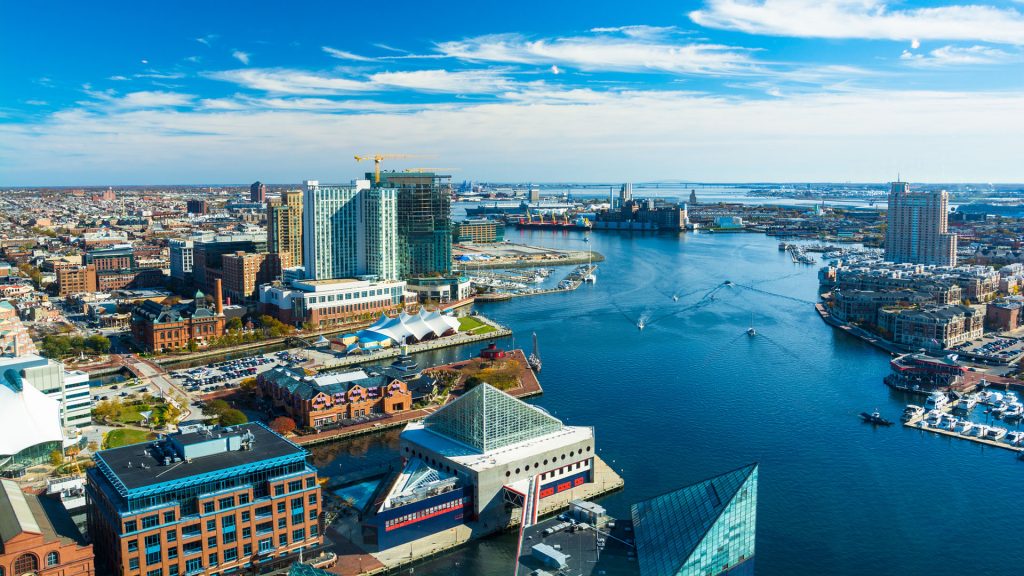ANNAPOLIS, MD – Removing natural gas service and usage could cost Baltimore households more than $26,000 each, a Consumer Energy Alliance (CEA) analysis found. The report “The Hidden Costs of a Maryland Natural Gas Ban,” examined the high cost to Maryland families and businesses from denying critical natural gas service. Misguided policies could greatly impact Maryland families and households that rely on natural gas for home heating, by forcing a conversion to electric service either with punitive building codes during construction or with equipment replacement and home remodeling costs.
The report examined what the cost implications of forced electrification on Baltimore families and consumers would be, depending on household appliance models, home configuration, labor and reliance on natural gas. It also examined the additional transmission line infrastructure that would be required to fulfill requirements to “electrify everything.” Using open-source consumer data, CEA developed a cost calculator to provide an estimate of what a typical household in the Baltimore area could expect to pay if policies to remove natural gas service and usage are put into place.
These findings dovetail with previous CEA research which found that the cost to replace just major gas appliances in homes nationwide would be more than $258 billion.
“With more than 40% of Maryland homes relying on natural gas during the winter for heat, banning such a critical resource would be a devastating blow to families who would have to pay more than $26,000 to involuntarily reconfigure their home and purchase new appliances. A ban on natural gas would also lead to an increase in energy bills, placing an unnecessary burden on the nearly one in 10 Marylanders who live at or below the poverty level, those on fixed incomes, and businesses still recovering from the hardships of COVID-19,” said CEA Mid-Atlantic Executive Director Mike Butler.
“While CEA supports voluntary efforts by consumers to use the types of appliances and services they prefer, forcing actions onto them must be balanced against the costs to households and real-world, practical considerations,” he said.
Commenting on how banning natural gas would hurt jobs, Baltimore-D.C. Building Trades President Stephen Courtien said: “Mandating electrification and banning gas hook-ups to new construction would cause serious harm to working families across Maryland. This proposed legislation threatens to eliminate hundreds of middle-class career opportunities in the gas industry, which has long provided family-sustaining wages and benefits to local residents. Time and time again, we are promised that replacement jobs will provide the same career quality as what was replaced, but we unfortunately have not seen this to be true – especially in the energy production sector.”
The report also highlights data from the Environmental Protection Agency, which shows that from 1990 to 2020, Maryland’s emissions have decreased across the board, including:
- 82% reduction in nitrogen oxides (NOx)
- 76% reduction in volatile organic compounds (VOCs)
- 97% reduction in sulfur dioxide (SO2)
“Maryland has achieved remarkable reductions in emissions even as natural gas use increased and pipeline infrastructure expanded, and the state’s economy surged. Misguided attempts to ban energy services will only lead to undue financial burdens on Maryland’s families, seniors and small businesses and work against our economic and environmental goals,” Butler said.
“Consumers should retain the right to keep the energy service they want and choose appliances they wish to use. Natural gas serves an important role in our energy mix as an always-on option, ensuring consumers have the power and heat they need, when they need it. We hope officials and lawmakers recognize the opportunities for natural gas and its infrastructure to play an important, complementary role in reaching net-zero objectives.” Butler said.
To view the report, click here.
###
About Consumer Energy Alliance
Consumer Energy Alliance (CEA) is the leading voice for sensible energy and environmental policies for consumers, bringing together families, farmers, small businesses, distributors, producers, and manufacturers to support America’s environmentally sustainable energy future. With more than 550,000 members nationwide, we are committed to leading the nation’s dialogue around energy, its critical role in the economy, and how it supports the vital supply chains for the families and businesses that depend on them. CEA works daily to encourage communities across the nation to seek sensible, realistic, and environmentally responsible solutions to meet our nation’s energy needs.
Contact:
Bryson Hull
(202) 657-2855
bhull@beta.consumerenergyalliance.org
